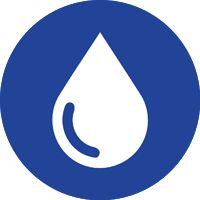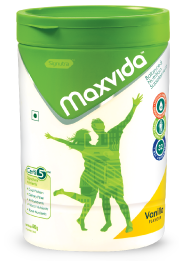
Cancer and nutrition
Advancement in therapy, the early detection methods, and better treatments have improved the prognosis of cancer to a great extent in the last few decades.
However, along with treatment, adequate nutrition can also be considered an important aspect in recovery and management of cancer. Good nutrition can help maintain weight and improve quality of life in cancer patients.1,2
Did you know?
Depending on tumour type, 30-80% cancer patients lose weight.3
Why do cancer patients require more nutrition?
Cancer and its treatment affect body’s nutritional status. They can lead to a condition called cachexia, in which the patient loses weight and body mass wastes away.2 Some of the causes of cachexia in cancer patients are explained below.
All these changes deplete the nutrient stores in the body of a cancer patient.2
Nutrition therapy is necessary to maintain the strength and resistance required to fight cancer cachexia, cope up with cancer therapy, and enhance its effects.2
Advantages of nutritional therapy:4
Nutritional management of cancer patients

Carbohydrates:
In cancer, if enough calories are not available from carbohydrates, the body starts breaking down proteins stored in the body. So, to spare the protein reserves, adequate carbohydrates should be provided in the diet of cancer patients. The best sources of carbohydrates are fruits, vegetables, whole grains, and cereals.4,5

Proteins:
Additional protein helps in healing and rebuilding tissues affected by cancer cachexia and side-effects of cancer treatment. It also helps build immunity to fight infections.6 A person suffering from cancer might need at least 1.5g of protein per kg body weight per day to ensure that the body gets enough amount of proteins.4
Good sources of protein include fish, poultry, lean red meat, eggs, dairy products, nuts, dried beans, peas, lentils, and soy.4,6

Fats:
Along with other nutrients, fats should also be supplied in cancer patients to make up for the inadequate daily intake.7 Omega-3, an essential fatty acid, can increase response to chemotherapy and should be consumed by cancer patients undergoing treatment.8 It can be obtained from seafood, walnuts, flax seeds, soybeans, and canola oil.4

Dietary fiber:
Cancer patients frequently suffer from diarrhoea as a side-effect of treatment. Increasing the intake of fibers like oats, barley, white rice, mashed potatoes, banana, fruits with skin, lentils, and beans in diet may help treat diarrhoea and improve gut health.9

Vitamins and minerals:
Cancer, in advanced stages, can lead to deficiency of essential nutrients like zinc, selenium, vitamin C (ascorbic acid), vitamin E (α-tocopherol), folic acid, and vitamin B12 (cyanocobalamin ).7,10 This increases the need for vitamins and minerals in cancer patients.
Also, antioxidants, like vitamin C, zinc, iron, and selenium, have been known to improve the quality of life of cancer patients.10 Thus, cancer patients should eat fresh green vegetables and fruits rich in vitamins and minerals.
The diet given to the cancer patients can differ with the type of cancer and treatment given. Hence, patients should abide by the nutritional recommendations of their dietician or doctor.
Tips for the nutritional management of cancer cachexia:
How can a nutritional supplement help?
A cancer patient may not be able to eat solid food due to decreased appetite, trouble swallowing, or perceived unpleasant smell or taste of food. In this case, liquid supplements with all essential nutrients can be given to the patient as a form of nutrition therapy.

Our balanced nutritional supplement, MaxvidaTM, contains Certi5TM signature nutrients, namely, dual protein, dietary fiber, antioxidants, hemo nutrients, and bone nutrients that help meet the increased nutrition needs of cancer patients. It can also be used for tube-feeding. |

We suggest having 1 serving of MaxvidaTM, 2 levelled scoops prepared with water, twice a day, along with a customized diet for adequate nutrition and recovery.
References: